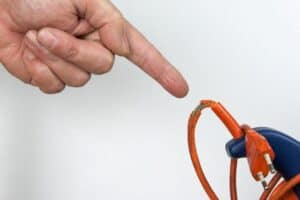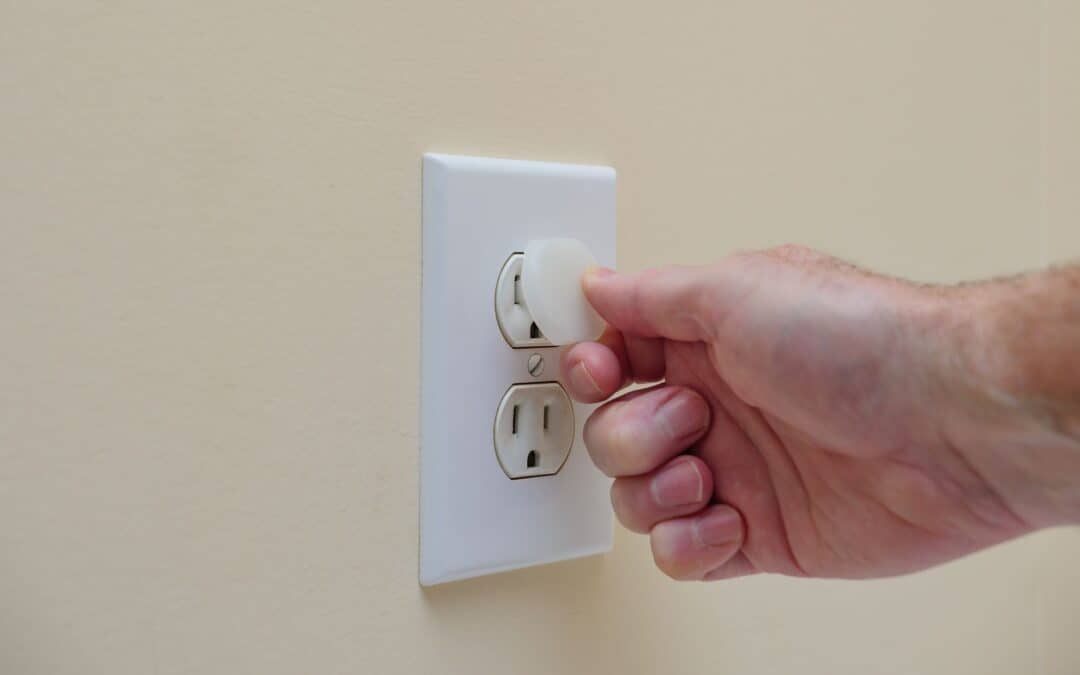In every home, electricity is like the lifeblood that keeps everything running smoothly. From turning on lights and charging phones to using appliances and staying warm, electricity is involved. However, along with its countless benefits, it’s vital to recognize that electricity can be a double-edged sword. Ensuring electrical safety in your homes is not just an option; it’s a necessity to protect your beloved abode and everyone within them.
Picture this: you’re making breakfast one fine morning when suddenly, there’s a spark and a loud pop from an outlet, followed by the alarming smell of something burning. This is an example of how a lack of electrical safety can abruptly turn an ordinary day into a nightmare.
The consequences of neglecting electrical safety can range from minor inconveniences, like a power outage, to devastating outcomes such as electrical fires, costly property damage, and even injuries or fatalities. These are stern reminders that being vigilant and proactive in electrical safety is imperative.
1. Regular Inspection And Maintenance
Consistent inspection and maintenance of your home’s electrical system are akin to going to the doctor for a check-up; it’s all about prevention and catching issues before they escalate. One important aspect of this is upgrading your electrical panel, especially if your house is older. Upgrading your electrical panel is like trading in an old car for a newer model; it keeps your home’s electrical system current and able to meet the needs of modern appliances and devices.
It is imperative to entrust electrical maintenance to a qualified electrician. A licensed professional has the requisite expertise to conduct a comprehensive evaluation of your home’s electrical system, ensuring compliance with safety standards and providing informed recommendations.
Keep an eye out for tell-tale signs that indicate something’s amiss. Flickering lights, unusually high electricity bills, or a constant buzzing sound from outlets are like your electrical system waving a white flag. It’s your cue to bring in a professional to investigate before these minor annoyances turn into major problems.

2. Proper Usage Of Electrical Outlets
Have you ever been tempted to plug just one more gadget into an already crowded outlet? While it might seem like a harmless act, overloading outlets is one of the prime culprits for electrical mishaps.
Ground Fault Circuit Interrupters (GFCIs) play a critical role in preventing electrical accidents in your home. In the event of a malfunction in an appliance, which could result in an electrical current being sent through a water source, GFCIs promptly detect any imbalance in the current and immediately cut off the power to prevent shocks.
It is highly recommended to install GFCIs in high-risk areas such as bathrooms and kitchens for enhanced electrical safety.
Lastly, curious little fingers and electrical outlets are a recipe for disaster. Keep your tiny explorers safe by using outlet covers or safety plugs. Educate children about the dangers and set ground rules. It’s all about combining safety features with knowledge to create a secure environment.
3. Extension Cords And Power Strips Safety
When choosing extension cords or power strips, it is essential to select the appropriate type based on the power requirements of the devices you intend to use. Utilizing an extension cord or power strip that cannot handle the combined wattage of connected devices may result in overheating or electrical failure. It is prudent to opt for options with a higher power rating than the anticipated load.
Plugging one extension cord or power strip into another should be avoided as it can easily lead to overloading and increase the risk of electrical fires. Additionally, the strategic placement of cords and strips is critical in minimizing tripping hazards. It’s advisable to route cords along walls or use cord covers, maintaining clear pathways in high-traffic areas.
To mitigate the risk of overheating, it’s essential to give extension cords and power strips ample breathing room for proper ventilation. Avoid bundling cords or tucking them behind furniture where air circulation is restricted.
Furthermore, regularly inspect cords for any signs of damage or excessive heat and replace them if necessary. Employing surge protectors can also add an extra layer of protection against voltage spikes and overheating.
4. Appliance Safety
To prolong the lifespan of electrical appliances and ensure safe operation, it is vital to adhere to the manufacturer’s guidelines for handling and maintenance. Regularly clean appliances to prevent the accumulation of dust and debris, which can cause them to overheat or malfunction.
Unplugging appliances when they are not in use not only conserves energy but also minimizes the risk of electrical surges damaging the appliances. It’s a simple yet effective habit that contributes to a safer home environment.
Ensure that the power specifications of your appliances match the electrical capacity of your outlets. Connecting an appliance that requires more power than what the outlet can supply can lead to overloading and potential hazards.
5. Dealing With Electrical Emergencies
In the event of a power outage, it is advisable to check if neighboring properties are also affected and then contact the local utility company. For electrical fires, the immediate course of action should be to disconnect the power source if it’s safe to do so, and use a Class C fire extinguisher or, if the fire is small, baking soda to douse the flames. Under no circumstances should water be used in an electrical fire.
In any electrical emergency, if the situation escalates or seems to be beyond control, it is imperative to call for professional help. Contact emergency services in case of fires and a certified electrician for situations that may require expert assessment and repair.
Conclusion
It cannot be stressed enough how vital it is for homeowners to take electrical safety seriously. By taking proactive strategies, you are laying the foundation for a safe living environment. Taking small steps now can prevent major issues later and, most importantly, it keeps your home and loved ones safe.

Recent Comments